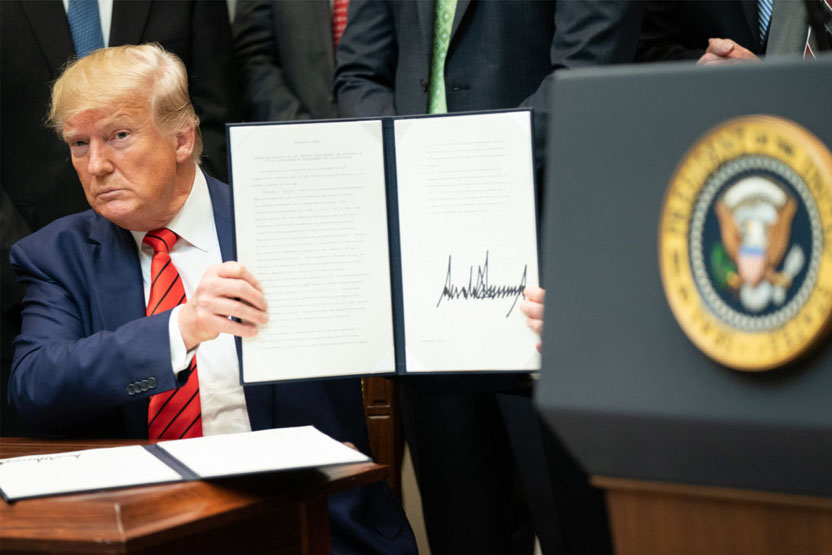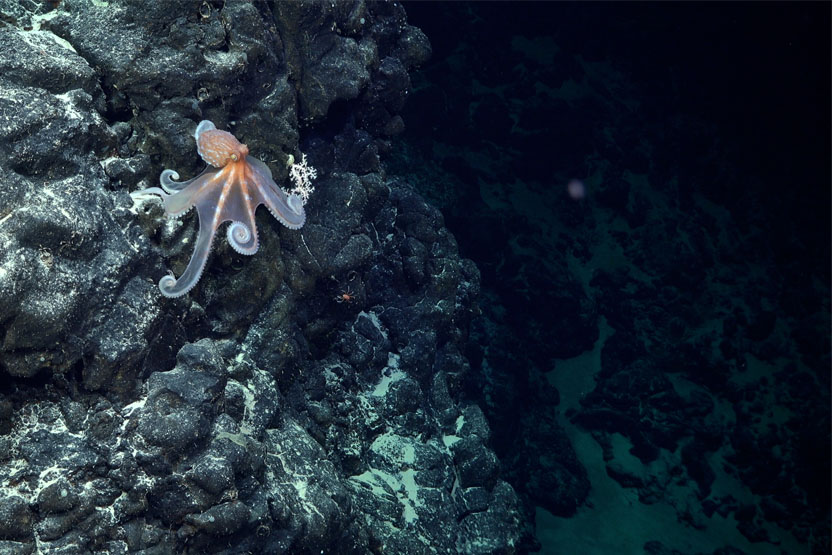Launching deep-sea mining without clear environmental assessments could trigger irreversible ecological and climate consequences

According to reports, ever since former U.S. President Donald Trump announced in April the opening of oceanic mining—including in international waters—environmental advocates have sounded the alarm about its disastrous impacts. Transnational alliances quickly responded to expert warnings of a looming “environmental genocide,” being prepared amid an international scramble for rare minerals.
In line with its broader shift away from climate and environmental protections and a renewed embrace of fossil fuels, the Trump administration estimated that deep-sea mining could add $300 billion to the U.S. economy and create 100,000 jobs over the next decade.
Although China, the European Union, international organizations, and environmental NGOs have rejected the U.S. move, scientists fear that opposition voices may weaken, paving the way for a global race to exploit minerals from the seabed with potentially catastrophic consequences.
The focus is on polymetallic nodules—potato-sized rocks that take hundreds of thousands, even millions, of years to form. These nodules are rich in manganese, nickel, cobalt, copper, and rare earths, while also serving as crucial habitats for deep-sea life. Their importance has soared in recent years, as these minerals are essential for electric vehicles, solar panels, smartphones, laptops, and other technologies critical to the green economy.
Extracting them requires drilling, dredging, blasting, or other disruptive methods in poorly understood areas of the deep sea—operations that only a handful of states and corporations have the technological capacity to undertake. This concentration of power raises the specter of a monopoly controlled by a few global actors.
To date, humans have explored less than 0.001% of the deep seabed—roughly one-tenth the size of Belgium. Scientists thus lack a sufficient understanding of these mysterious ecosystems.
The ocean floor hosts undersea volcanoes, mountain ranges, and vast plains teeming with unique species adapted to extreme conditions: low light, crushing pressure, and near-freezing waters. Many organisms are incredibly long-lived—some fish live for centuries, corals for millennia, and certain sponges for as long as 11,000 years. Countless species remain undiscovered, existing within ecosystems that do not regenerate on human timescales. “If they are lost, they are lost forever,” warns Farah Obaidullah, an environmental activist and founder of The Ocean and Us in Spain.
Without a full understanding of how these ecosystems function, the exact consequences of mining remain unknown. Yet existing research shows that deep-sea extraction could unleash devastating impacts, including:
Habitat destruction: Mining could wipe out seabed habitats beyond recovery, threatening bottom-dwelling species from worms and shellfish to sponges and starfish—along with countless unidentified organisms.
Sediment plumes: Extraction stirs up vast sediment clouds, disrupting migratory species such as sharks and turtles and damaging fisheries already under pressure. Today, 57.3% of fish stocks are fully exploited, while 35.4% suffer from overfishing.
Food web disruption: Removing polymetallic nodules risks dismantling complex ecological chains, such as those sustained by glass sponges that support marine life.
Light and noise pollution: Heavy machinery, dredging, blasting, and vibrations create disturbances that exceed safe thresholds for many whale species.
Toxic discharges and carbon release: Mining could unleash waste and disturb carbon stores buried deep in the oceans, undermining climate regulation both locally and globally.
Ocean mining could destroy an ecosystem whose secrets are largely undiscovered.
The Risk of a Mining Fever
Experts warn that commencing deep-sea mining without robust environmental safeguards could have far-reaching consequences for the planet, societies, and livelihoods. In the worst-case scenario, it could trigger a large-scale ecological collapse from which the Earth would never recover.
The Deep Sea Conservation Coalition has urged the International Seabed Authority (ISA) to establish strict regulations before any exploitation begins. So far, 37 countries support a moratorium on seabed mining, backed by Indigenous communities, environmental groups, and more than 930 scientists and lawmakers from over 70 nations.
“The mining hasn’t started yet, but if it does, it will not only bring massive environmental destruction—it will usher in a new era of colonialism,” says Obaidullah. She stresses that international waters belong to everyone, not a handful of states. Allowing a few nations to seize control, she warns, could trigger a new “gold rush,” with wealthy countries re-colonizing this shared global space.
Under the United Nations Convention on the Law of the Sea, the ISA has spent over a decade drafting regulations for seabed mineral exploitation in international waters. After failing to finalize commercial standards in July 2023, the body postponed discussions until its July 2025 session. No licenses for deep-sea mining have yet been granted, halting all potential commercial operations in international waters until thorough impact assessments and stringent safeguards are in place.
While industry supporters argue that deep-sea minerals are indispensable for the energy transition, scientists counter that more sustainable alternatives exist—options that do not involve destroying one of Earth’s most fragile and vital ecosystems.
Covering 70% of the planet, oceans regulate global climate, produce most of the oxygen we breathe, absorb vast amounts of carbon dioxide, and host a complex web of life that sustains all ecosystems on Earth. They are also the world’s largest carbon sink, making them indispensable in the fight against climate change.
Experts emphasize that while humanity’s need for minerals will persist, especially in a greener future, the methods of obtaining them must be sustainable. A moratorium would give the scientific community the time it needs to study the deep sea more thoroughly, explore safer alternatives, and reshape ocean policies to safeguard marine ecosystems from irreversible harm.



Comment
Reply